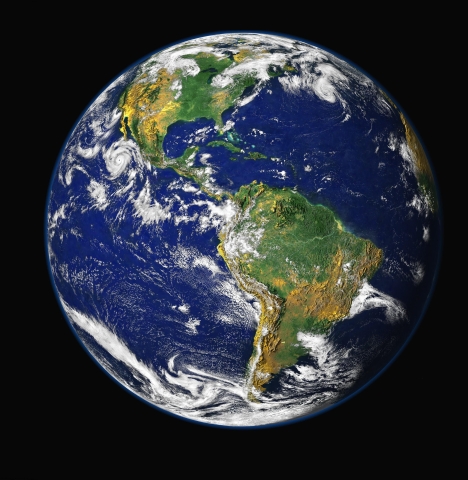UFI’s Global Barometer Points to Positive 2018 for Exhibition Industry

Last year ended on a positive upswing that will follow into 2018, according to the 20th edition of UFI – The Global Association of the Exhibition Industry’s Global Barometer report.
"Globally, the exhibition industry is growing at a healthy rate. Companies around the world are looking into expanding their activities within and beyond their present activities and geographic borders,” said Kai Hattendorf, UFI managing director/CEO.
He added, “In parallel, new business models are under development, and many players in the industry expect them to deliver a relevant share of their company's revenues in the coming years.”
The top business issues remain the state of the economy in home markets, and global economic development - the first one rising in importance, the latter one's importance declining.
Results also indicate that a very large majority of companies are looking to develop new activities, while a significant proportion is also considering investments in new geographical markets.
Revenue generated from new business models is expected to grow considerably in the coming years as the exhibition industry embraces evolving business models.
The research presents a global overview of industry data, broken down into company types and 17 separate market profiles.
This edition’s data is based on input from a record 290 participants from 53 countries and regions.
Seventy percent of companies around the world declared an increase in turnover for the second half of 2017, while 72 percent anticipate an increase for the first half of 2018 and 77 percent for the second half.
Companies in several markets are well-positioned to out-perform these previsions in 2018: Brazil, Germany, Macau, the U.S. and the U.K., whereas a significant level of uncertainty still exists for many countries in Asia, including most parts of China.
In terms of operating profit, most markets maintained or improved a good level of performance in 2017: 44 percent declared an increase and 43 percent a stable profit.
A majority of companies declared an increase their operating profit in 2017 in nine of the markets analysed: Brazil, China, Germany, Indonesia, Macau, Mexico, the Middle East, the UK and the US
When asked about the revenue share expected from new business models (such as different event formats, digital revenues or marketing services), a majority of participants responded that they expect this revenue to represent between 5 and 10 percent of total revenue in five years’ time, and more than 10 percent in 10 years’ time.
One quarter of the companies is expecting these new business models to generate a share of more than 25 percent of their revenues in ten years’ time.
Most notably, an above-average share is expected in the following markets: Australia, China, India, Indonesia, Macau, Mexico, Thailand, the U.K. and the U.S.
The top business issues for the coming year remain the “State of the economy in the home market”, (for 25 percent of the respondents), “Competition from within the industry” (21 percent), “Global economic developments” and “Internal challenges” (16 percent each).
This means that "Global economic developments” have become less important than in previous years. Detailed results indicate that “Competition from within the industry” is the top business issue in the following 4 markets: China and Macau, India and Germany.
In terms of the range of revenue-generating activities, a large majority of companies intends to develop new activities in either the classic range of exhibition industry activities (venue/organiser/services), other events (live or virtual), or in both of these areas: 72 percent in the Middle East & Africa, 78 percent in Asia/Pacific and 88 percent in the Americas and Europe. In terms of geographical exposure, an average of 4 out of 10 companies declared their intention to develop operations in new countries, and this is the case for a majority of companies in five of the 17 markets analysed: the UK and the Middle East (67 percent), China (57 percent), India (53 percent) and Germany (50 percent).
This latest edition of UFI’s industry survey was concluded in January 2018 and includes data from 290 companies in 53 countries. This constitutes the largest-ever number of participants in this global survey.
The study delivers outlooks and analysis for 14 major markets: Australia, Brazil, China, Germany, India, Indonesia, Italy, Macau, Mexico, Russia, South Africa and Thailand, Thailand, the UK and the US. In addition, three aggregated regional zones have been analysed.
“This is the 20th edition of our Global Barometer and we are very pleased to report a record number of participants, allowing us to include data from 290 companies,” Hattendorf said.
He added, “We are also pleased to welcome EEAA (The Exhibition and Event Association of Australasia), IECA (Indonesia Exhibition Companies Association) and MFTA (Macau Fair Trade Association), as partners for this report. These partnerships have enabled us to add a new country profile for each of these markets.”
The full results can be downloaded at www.ufi.org/research.


Add new comment